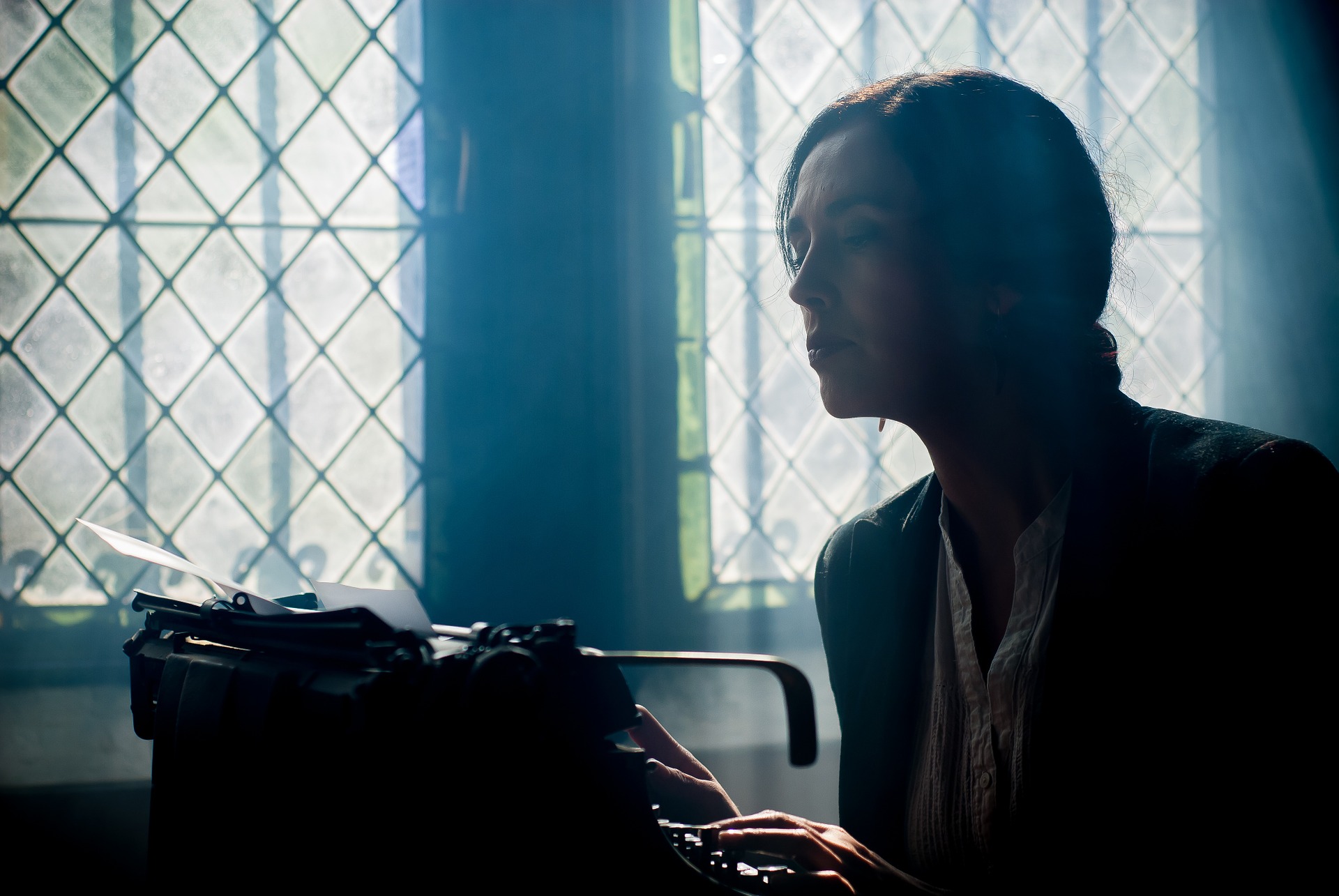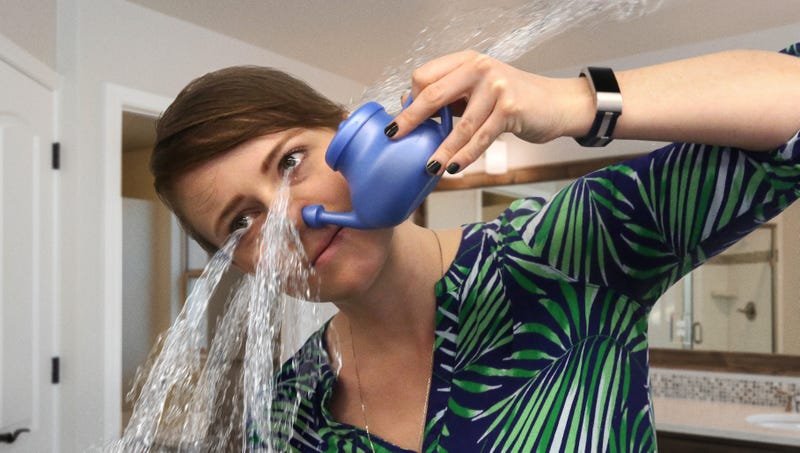Why are writers so insecure? Today I’m going to tell you!
Many, many years ago, back before I even considered myself a writer, when I was just working on a play kind of as a lark, when I was just scribbling odd little nothings to myself in notebooks (which would become the blog posts and morning pages of today), I had an interaction with my sister. I couldn’t tell you what the substance of the interaction was, or what we were talking about, or what I said, exactly, or really any details of the interaction — except for one.

And this detail, well, it stuck in my consciousness like the rusted-out bicycle that a tree grows around. I shaped myself around this comment, almost certainly to my detriment, in the intervening time. It ate me up from the inside, turning me into a neurotic mess of a writer, shaking my confidence the way earthquakes used to shake buildings before they started putting buildings on wheels.
Here’s the situation. I was home from college — or maybe just visiting my folks after college — or, hell, maybe it was before college, who can tell, that’s how bad my memory is but it’s not the point — and talking to my sister about something. Who knows what. And I said something.
What I said, I could not tell you today under pain of torture, except to say that it was an attempted witticism, a stab at something snarky, a foray into wordplay that went wrong. I felt it going wrong in the moment of saying it, the way a major league batter just feels the home run when it leaves his bat, or more precisely, the way he feels that he hasn’t just missed the pitch, he’s tipped it, at dangerous speed, probably past the protective netting, probably into the face of an unsuspecting fan, or worse, a kid, where it will knock out teeth or shatter cheekbones and necessitate a carefully-worded statement from the front office and probably an apology tour in the media. The words felt like that, coming out of my mouth. (Whatever they were.)
I knew, to put it bluntly, that I had botched my attempt at making good words, and botched it badly.
And my sister said to me, in that hurtful way that only your little sister who’s taken a lifetime of your crap can say, “wow, you’re a real wordsmith, aren’t you?”
You know that scene in every action movie where the building (or the car or the villain’s fortress or whatever) is exploding — just going entirely to pieces, irreparable damage, nothing but fire and pain and devastation filling the frame — and the hero (or heroine, this is the 21st century after all) is totally cool, walking away from it without a care? Or the end of Star Wars (episode IV or VI, reader’s choice) where the fateful shot is away, the heroes are flying off into the dark of deep space, and the villains keep flipping switches and coolly saying things like “fire on my mark” but they don’t know that they’re dead already?
This was like that.
“You’re a real wordsmith, aren’t you,” would stick in my brain and shape me more than I’d like, and certainly more than I’d care to admit, for years and years and years.
Every now and then, sometimes while writing, sometimes not, I’d hear it again, playing on a loop in my brain, and it would never fail to demoralize.
Wrote a sentence in my novel I’m not too sure about?
“You’re a real wordsmith, aren’t you?”
Used a totally inadequate word because I couldn’t think of the perfect one?
“You’re a real wordsmith, aren’t you?”
Said something totally idiotic in a everyday conversation?
“You’re a real wordsmith, aren’t you?”
Just sitting there watching TV, not even thinking about writing at that particular moment?
“YOU’RE A REAL WORDSMITH, AREN’T YOU?”
Everything I write, I have to contend with that voice in my head: it’s good, sure, but is it wordsmith good? So I second-guess myself to death. Is this creative enough? Is it clever enough? Smart enough? Or could any schlub with a pencil and half a brain come up with something better?
Then, once second-guessed, it’s only natural to third-guess the problem. I could make it better by throwing in MORE words. Better words. ALL THE WORDS. Or maybe get rid of the sentence entirely — the words can’t be dumb if there are NO WORDS AT ALL.
This thinking leads, like a boulder down a mountain path, to overthinking, until the boulder turns into a self-doubt and self-loathing black hole, population: me and everything I have ever written.
Absolute poison.
And while I internalized that comment, like an ingrown toenail, or like the point of that Morghul blade working its way inexorably toward Frodo’s heart, my sister got to walk away and never think about it again for the rest of her life. Probably the most she ever thought about it was in the very next second after she said it, to say to herself “good burn,” and then forget about it forever.
I tell you all this not to shame her, but to shame myself. To purge the poison by first acknowledging the fact that I’ve been poisoned. The fault in this tale is not hers for saying the thing, but mine for taking the thing and wrapping it in silk and tucking it away in the secret place in my mind to take out and fetishize and fixate upon.
It’s hard — nigh impossible, I’d almost say — not to do this. When we identify so closely with what we create (as authors and artists of all stripes must, by necessity), then an assault on that thing becomes an assault on us, in much the same way that, oh, I don’t know, a high-profile sports star saying disparaging things about certain people in positions of power makes people that like the disparaged person come to hate said high-profile sports star, even though they have no personal stake in what was said at all.
AHEM AHEM I DIGRESS.
Our work is a part of ourselves, and that’s not a bad thing — but we also have to be able to see our work as not a part of ourselves. To see that the words we write aren’t themselves who we are, but instead just a reflection of who we are in the moment. And, most importantly, those reflections can always be improved and changed — and we don’t have to beat ourselves up over them.
Go forth and wordsmith.
Imperfectly.




